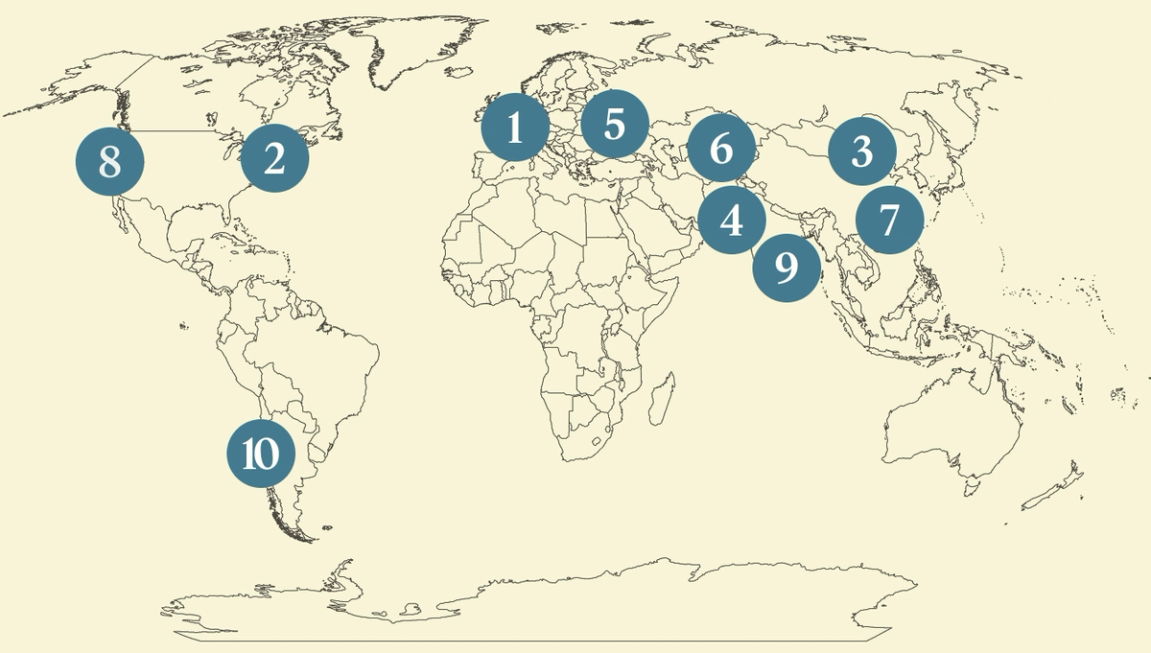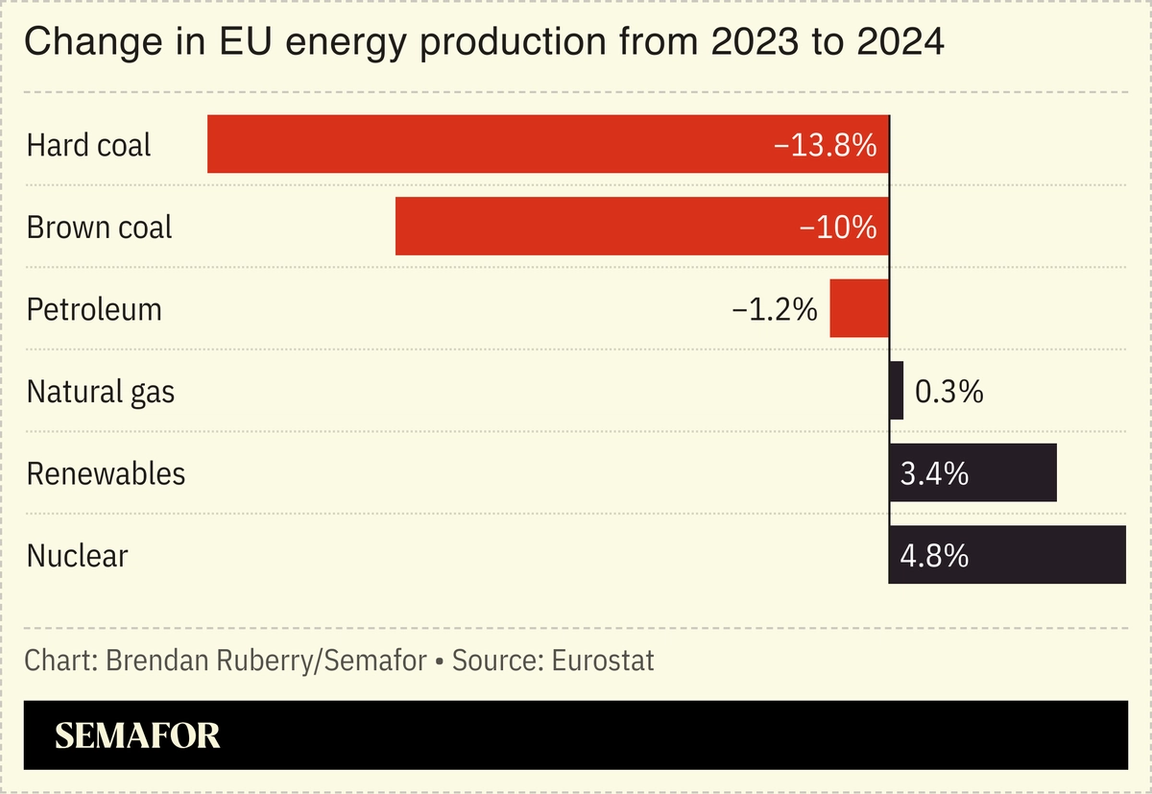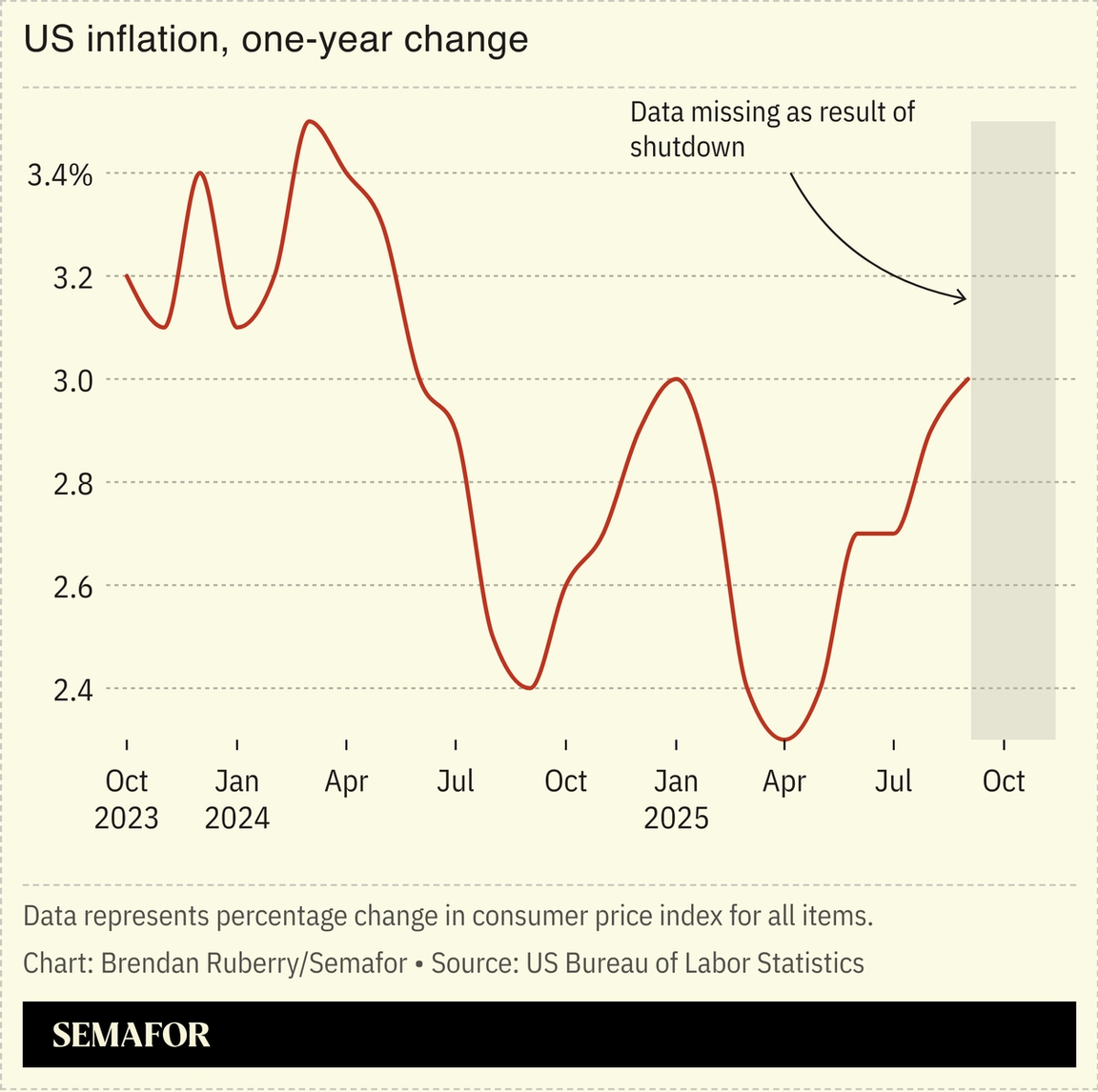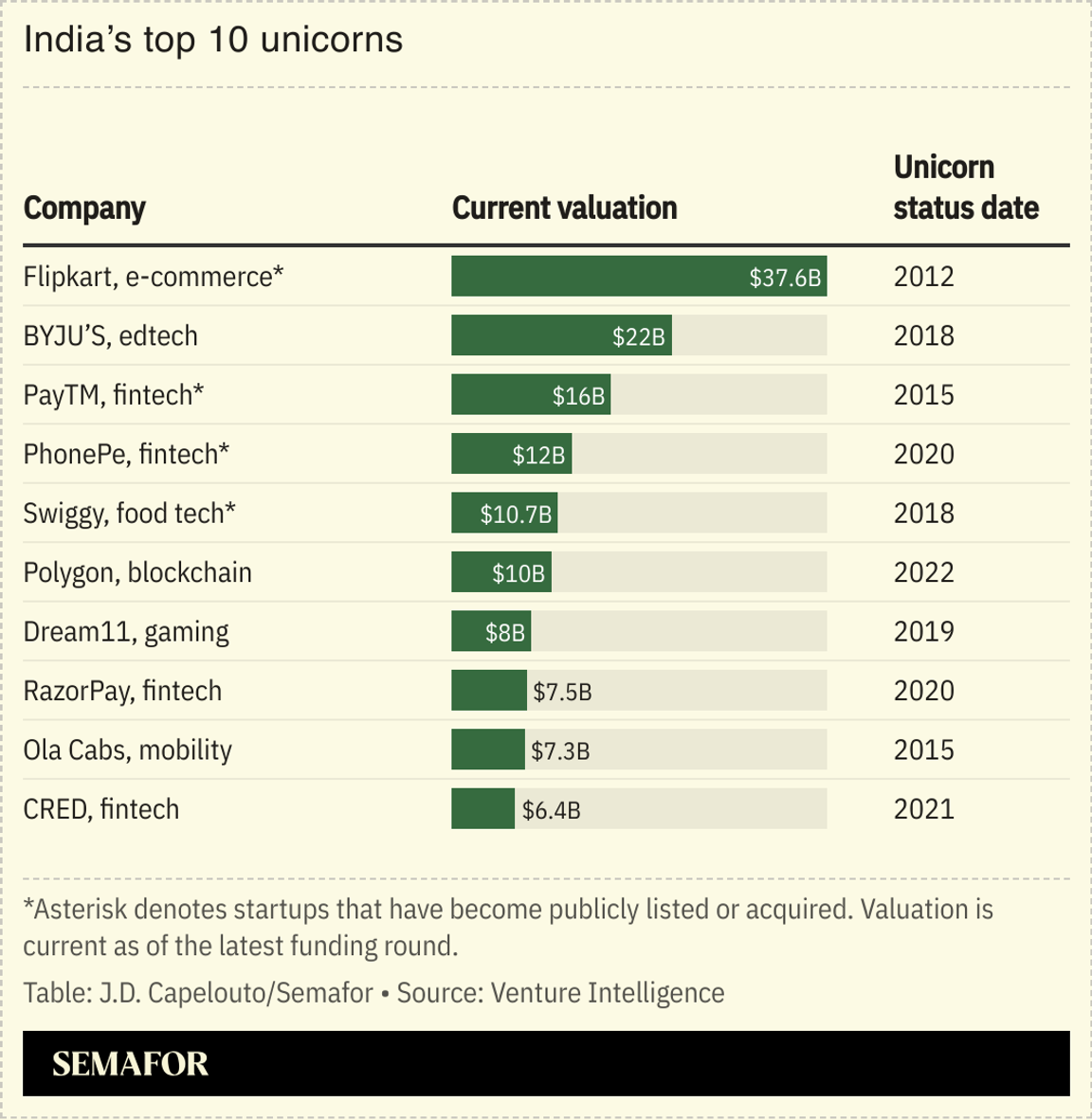| | EU lawmakers agree to roll back green rules, the White House seems nervous about the affordability c͏ ͏ ͏ ͏ ͏ ͏ |
| |   DUSHANBE DUSHANBE |   BENGALURU BENGALURU |   SHENZHEN SHENZHEN |
 | Flagship |  |
| |
|
The World Today |  - Historic EU climate vote
- Affordability in the spotlight
- Perception vs. reality in China
- Powerful Pakistani army chief
- Ukraine drone pilots targeted
- State-backed messengers
- China’s robotics challenges
- AI a threat to web ads
- Indian heirs bet on startups
- Benefits of multilingualism
 The Mona Lisa of illuminated manuscripts goes on display in Italy, and China’s “Everything, Everywhere, All At Once” approach to the global economy. |
|
EU far right helps roll back climate rules |
 The European Parliament on Thursday agreed to roll back corporate sustainability reporting rules, after center-right lawmakers teamed up with the far right. It marked the first time the legislative body has sent a major proposal to final EU negotiations because of such an alliance, showing a willingness from Europe’s leading conservative politicians to abandon their traditional centrist partners in service of an aggressive deregulation agenda, Politico EU wrote. The bill, which scraps companies’ mandatory climate transition plans, is the first landmark legislation under European Commission President Ursula von der Leyen’s second term; she is pursuing a “simplification” agenda aimed at improving the bloc’s business environment and innovation. One academic criticized the vote as a “self-inflicted wound that will define our era.” |
|
WH ramps up affordability efforts |
 The Donald Trump administration is trying to fend off the political backlash of rising prices in the US. The president has called the idea of an affordability crisis a “con job by the Democrats,” but comments from his top advisers in the past week suggest they are nervous about consumer pain, Semafor reported. Officials have floated $2,000 tariff checks, duty exemptions on groceries like coffee, and 50-year mortgages. The push comes after Democrats running affordability campaigns resoundingly won recent elections. One of them, New York City Mayor-elect Zohran Mamdani, has deployed former FTC head Lina Khan to scour state and city laws that would help advance his affordability agenda — including making concessions at sports stadiums cheaper. |
|
Debate over China’s global perceptions |
 Go Nakamura/Reuters Go Nakamura/ReutersTwo Chinese writers argued there’s a gulf between the country’s perception on the world stage and the reality on the ground. Beijing’s state policies project it internationally as a strong rival to the US, but many Chinese residents are despairing about their own “dimming economic and personal prospects,” Beijing-based writer Helen Gao wrote in The New York Times. And The Wall Street Journal’s China correspondent pushed back against the common refrain that the US is taking a cue from China’s political model — a perception recently fueled by New York City’s election of a democratic socialist mayor. But Zohran Mamdani’s agenda advocating for a social safety net is not like China’s socialism, which is a “system of power,” Lingling Wei argued. |
|
Pakistan army chief grows more powerful |
 Iranian Presidency/Anadolu Agency via Getty Images Iranian Presidency/Anadolu Agency via Getty ImagesPakistan expanded the power of its army chief at a critical moment for the country’s national security. Syed Asim Munir will now command all three branches of the military and has lifelong legal immunity. The move to constitutionalize his authority “collides with… the fragile equilibrium between civilian and military power,” Pakistani outlet Dawn wrote. Critics said it reflected a slide toward authoritarianism, but Islamabad argued it was necessary following a brief armed conflict with India in May. Bombings in both countries this week raised tensions, and Pakistanis “fear a multifront conflict,” an expert wrote, pointing to border clashes with Afghanistan. By contrast, Islamabad has turned around its rocky relationship with Washington; President Donald Trump called Munir his “favorite field marshal.” |
|
Russia targets Ukraine drone pilots |
 Alina Smutko/Reuters Alina Smutko/ReutersRussia’s military isn’t just targeting Ukrainian drones; it’s going after their pilots, too. An elite unit called Rubikon has made it its mission to track, hunt, and kill Ukraine’s drone operators, who have emerged as a scrappy and effective force in Kyiv’s war effort. “It’s easy to replace a drone, but it’s hard to replace a drone pilot,” one Ukrainian rapper-turned-operator said. It marks a “chilling reversal on the digital battlefield,” the Financial Times wrote, and suggests Russia’s typically sclerotic military is finding ways to innovate as the war approaches its fourth anniversary. “It’s a cat-and-mouse game with physics as the umpire,” an electronic warfare expert said. |
|
Governments launch national messengers |
 Shamil Zhumatov/Reuters Shamil Zhumatov/ReutersCountries are promoting domestic messaging apps to counter popular global rivals. Tajikistan this week launched the national ORIZ app, targeting Tajik migrants working in Russia, where access is limited to Telegram and WhatsApp. And Indian officials have been promoting a homegrown competitor to the Meta-owned WhatsApp — a juggernaut in the country — as part of the government’s “Made in India” push aimed at bucking US tariffs. The moves mirror a tech nationalism drive in Russia and Kazakhstan: Moscow ordered its recently launched state-controlled MAX app to be pre-installed on all phones and tablets, part of the Kremlin’s efforts to more tightly control speech and online activity. |
|
Robots lack ‘embodied intelligence’ |
 Cai Xiangxin/Xinhua via Getty Images Cai Xiangxin/Xinhua via Getty ImagesChina’s robotics industry is rapidly growing, but faces major challenges in advancing its products. The sector’s revenue grew 29.5% year-on-year in the first three quarters of 2025, official data showed. The country has produced 595,000 industrial and 13.5 million service robots this year, more in both cases than last year’s totals. But most industrial robots remain relatively dumb, single-use tools. Generative AI leapt ahead by training on vast amounts of data gleaned from the internet, but real-world data necessary to create “embodied intelligence” that can power robots is harder to generate, meaning robots lack the sophisticated understanding of physics required for meaningful autonomy. “The industry is still at the starting line of a marathon,” one roboticist told Caixin. |
|
 The Secretary of Health for Maryland, Meena Seshamani, M.D., Ph.D., will join the stage at The Future of Health Forum in Washington, DC on Nov. 18, 2025. As discussions continue around federal programs such as the ACA subsidies extended under the 2021 Inflation Reduction Act, Americans are confronting rising healthcare costs, shrinking community services, and persistent workforce shortages. Affordability, access, and quality of care remain more urgent concerns than ever. To explore the factors shaping this moment — and potential solutions — Semafor will convene leading experts for a forum on the future of US health care.
Nov. 18 | Washington, DC | RSVP → |
|
|
AI’s threat to internet ads |
 Beata Zawrzel/NurPhoto via Getty Images Beata Zawrzel/NurPhoto via Getty ImagesThe rise of AI could destroy the internet’s business model, the creator of the World Wide Web warned. Internet advertising has made Google and Meta into multi-trillion dollar businesses. But Tim Berners-Lee told the Financial Times that if large language models read the internet on users’ behalf and provide a summary, “the whole ad-based business model of the web starts to fall apart.” As yet, it does not seem to be happening — Alphabet, Google’s parent company, posted a record $100 billion quarterly revenue last week, and Meta also saw revenues shoot up. Another possibility is that AI allows increasingly personalized and thus lucrative advertising, like how Netflix and Spotify tailor their recommendations based on consumers’ history, a Harvard expert wrote. |
|
Indian heirs eye startup investments |
 An upcoming intergenerational wealth transfer in India could accompany a surge in risky investments in startups. Some $1.5 trillion is expected to change hands over the next decade, but much of the next generation may be reluctant to stay in the family business and would prefer not to hold onto physical assets like land or gold, or pursue safe-haven investments, CNBC’s Inside India newsletter reported. Instead, they are inspired by a wave of Indian tech and e-commerce startups that became unicorns. Family offices are emerging as leading investors in those ventures. “There is a belief that the youngsters feel that out of 10 startups, one will emerge and become substantially large,” a wealth manager said. |
|
Being multilingual could slow brain aging |
|
|